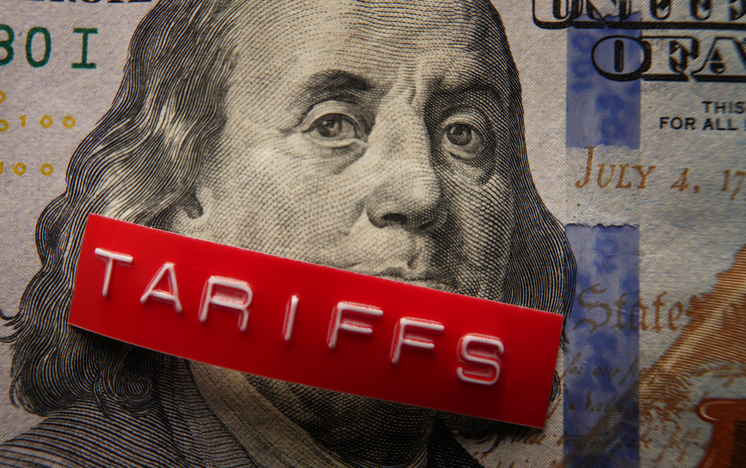Beat Tariff Stress: How Invoice Factoring Saves Small Businesses
Trade policies shift without warning, and tariffs can hit small businesses like a financial curveball. One month you’re operating smoothly, the next you’re facing 25% higher costs on essential raw materials. Your profit margins shrink, cash flow tightens, and suddenly every business decision feels risky.
Small business owners know this scenario all too well. Tariffs don’t just increase costs—they create a domino effect that touches every aspect of operations. But smart business owners have discovered a financial strategy that helps them stay resilient: invoice factoring.
This financing solution transforms your unpaid invoices into immediate cash, giving you the liquidity needed to navigate tariff challenges and maintain steady operations.
How Tariffs Hit Small Businesses Where It Hurts
Tariffs function as taxes on imported goods, and their impact extends far beyond the initial price increase. When the government imposes tariffs on products your business relies on, several challenges emerge simultaneously.
Higher operational costs become the most immediate concern. Raw materials, components, and finished goods from affected countries suddenly cost more. A manufacturing company that depends on imported steel might see material costs jump overnight, forcing difficult decisions about pricing and production.
Operational disruptions follow close behind. Businesses face three challenging options: raise prices and risk losing customers, absorb the additional costs and sacrifice profit margins, or scramble to find alternative suppliers. Each choice brings its own complications and potential delays.
The broader economy feels these effects too. Consumer spending often becomes more cautious when tariffs drive up prices across multiple industries. Supply chains experience disruptions as companies rush to secure inventory before additional tariffs take effect, creating shortages and further price volatility.
Invoice Factoring: Your Financial Lifeline
Invoice factoring offers a straightforward solution to cash flow challenges. Instead of waiting 30, 60, or 90 days for customers to pay their invoices, you sell those outstanding invoices to a factoring company and receive immediate cash.
The process works simply: you complete work for a client, send an invoice, then sell that invoice to a factoring company. You receive 80-95% of the invoice value upfront, while the factoring company collects payment directly from your customer.
Immediate cash access represents the primary advantage. Rather than watching your bank account dwindle while waiting for customer payments, you maintain steady cash flow that keeps operations running smoothly.
No additional debt makes factoring particularly attractive. Unlike traditional loans, factoring doesn’t add liabilities to your balance sheet. You’re not borrowing money—you’re simply accelerating payment on work already completed.
Professional credit management adds another layer of value. The factoring company handles payment collection, freeing up your time to focus on core business activities rather than chasing down late-paying customers.
Why Invoice Factoring Works During Tariff Uncertainty
Tariff environments create specific financial pressures that invoice factoring addresses effectively. When import costs rise unexpectedly, having immediate access to cash becomes crucial for several reasons.
Improved cash flow stability helps you cover essential expenses without delay. Payroll, rent, and supplier payments can’t wait for slow-paying customers, especially when tariffs have already strained your budget.
Enhanced financial flexibility allows you to adapt quickly to changing conditions. Whether you need to stock up on inventory before additional tariffs hit or invest in alternative suppliers, factoring provides the liquidity to act decisively.
Risk mitigation becomes particularly valuable when trade policies remain unpredictable. Steady cash flow helps insulate your business from sudden tariff changes that might otherwise force operational cutbacks or emergency borrowing.
Growth opportunities often emerge even during challenging periods. Companies with strong cash positions can invest in product development, explore new markets, or acquire struggling competitors at favorable terms.
Real Success in Action
Consider a small electronics manufacturing company that relied heavily on imported components from Asia. When tariffs increased their material costs by 30%, the company faced an immediate cash crunch. Customer payments typically arrived 45 days after delivery, but the higher material costs required immediate payment to suppliers.
By implementing invoice factoring, the company accessed 90% of their invoice values within 24 hours of completing orders. This immediate cash flow allowed them to maintain inventory levels, meet payroll obligations, and invest in automation equipment that reduced their dependence on imported labor.
Within six months, the company had optimized their operations enough to offset most of the tariff impact while maintaining competitive pricing. The steady cash flow from factoring enabled strategic investments that strengthened their market position long-term.
Transform Financial Challenges into Competitive Advantages
Tariffs will continue affecting global trade, but your business doesn’t have to suffer from their unpredictable nature. Invoice factoring provides the financial stability needed to navigate uncertain trade environments while positioning your company for growth.
Smart business owners recognize that cash flow challenges require proactive solutions. By converting your outstanding invoices into immediate working capital, you maintain the flexibility to adapt, invest, and thrive regardless of shifting trade policies.
Evaluate your current cash flow situation and consider how invoice factoring might strengthen your financial position. The businesses that emerge stronger from tariff challenges are those that act decisively to secure their financial foundation.





